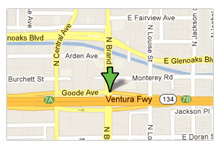The United States Citizenship and Immigration Services (USCIS) began accepting applications from employers for H-1B visas on Monday, April 1, 2013. By Friday, April 5, approximately 124,000 H-1B applications had been received, exceeding by 39,000 the 85,000 maximum number of H-1B visas allowed each year.
H-1B visa lottery
In situations where the H-1B visa cap is exceeded, the USCIS holds a lottery. The last H-1B visa lottery was held in 2008. Because 20,000 of the 85,000 available H1-B visas are reserved for applicants with graduate degrees from a United States university, a lottery for those spots is conducted first. The applications not selected in the first lottery are then put back in the pot with the other applications and a second lottery is held to fill the remaining 65,000 spots.
High demand for H-1B visas signals recovering economy, inadequate workforce
The surge in demand for H-1B visas means employers are hiring, which is a sign that the U.S. economy is improving. However, it also means there is a high demand for employees in so-called specialty occupations, in particular computer programming, engineering and medicine, for which the U.S. workforce provides an insufficient number of qualified individuals.
H-1B visa restrictions have high economic cost
The inability to keep up with the demand for H-1B visas reflects the extent to which U.S. business immigration policy is out of touch with the reality of the modern U.S. economy. Microsoft recently reported that it has 3,400 positions it has been unable to fill from the U.S. workforce. Microsoft's inability to fill those positions with qualified foreign workers undermines its ability to complete in the high-tech market and robs the U.S. economy of thousands of well-paying jobs.
Microsoft, as well as other U.S.-based employers, may see as their only choice to relocate their operations to a country with fewer restrictions on employment visas for highly-skilled workers. Once a business makes the decision to move its operations overseas, the U.S. economy is permanently deprived of economic benefit. Skilled foreign workers may also shy away form the U.S. as the employment opportunities in countries with less-restrictive employment visa policies become more attractive.
Changes to H-1B policies proposed
A few ideas to address the H-1B shortage have been circulating on Capitol Hill. A bill supported by high-tech companies including Google and Microsoft proposes possible solutions to the H-1B shortage by a combination of measures.
First, the bill proposes an increase in the H-1B cap from 85,000 to 110,000 with the option of making available an additional 70,000 visas if circumstances require. The bill would also treat employers with a high-percentage of foreign workers differently. All employers with 30 percent or more H-1B employees will pay higher applications fees. The higher fees will increase the amount of the H-1B application fee that already goes to programs to provide education for American workers. The number of visas for which employers with a high-percentage of foreign workers may apply will also be limited. The bill provides that beginning in fiscal year 2014, employers whose workforce is comprised of 75 percent or more H-1B holders will be barred from filing any more H-1B applications. In fiscal years 2015 and 2016 employers whose work force is 65 percent or 50 percent respectively will also be barred from filing any more H-1B applications.
Speak to a business immigration attorney
When your company is faced with employment-related immigration matters, working closely with a business immigration lawyer who will explain clearly all rights, options and consequences can help to ensure that you make decisions that are in your business's best interests.


